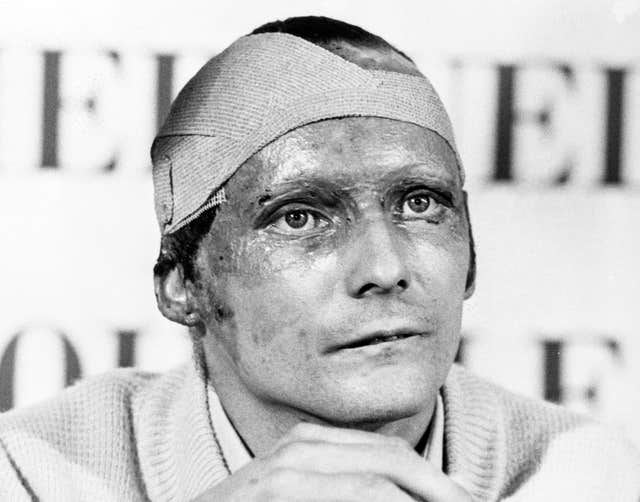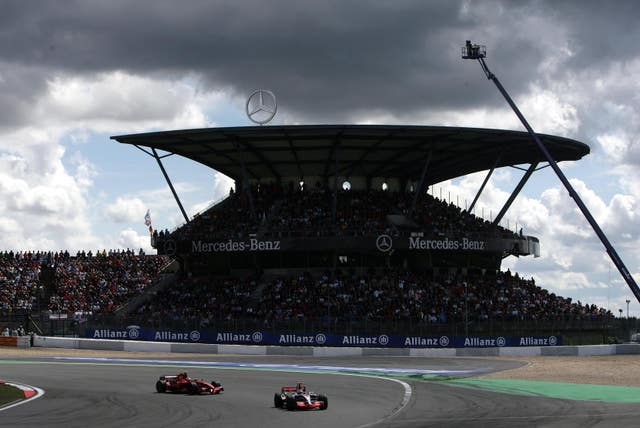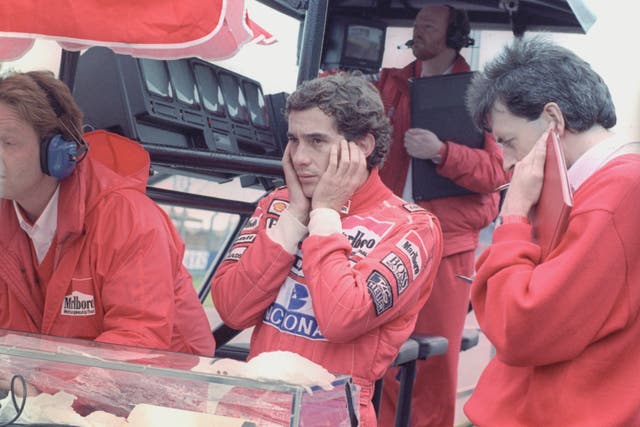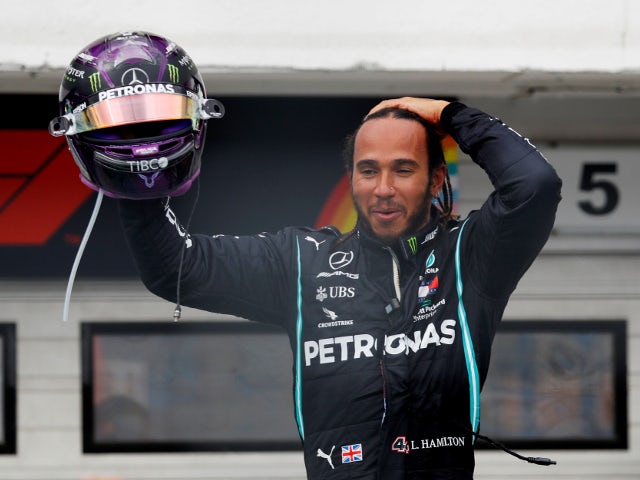Formula One has confirmed three more European races in 2020 after abandoning its American swing in Texas, Mexico, Brazil and Canada.
Here, the PA news agency looks at what is in store at Nurburgring (October 11), Portimao (October 25) and Imola (November 1).
Nurburgring
History

The Nurburgring was constructed in 1925 and became the main venue for the German Grand Prix in 1951.
Reigning world champion Niki Lauda – who had been concerned about the safety of the track – crashed and suffered serious burns there in 1976 and Nurburgring underwent significant safety improvements.
A new Grand Prix race track was built in 1984, with the complex capable of hosting 150,000 people. It returned to Formula One, hosting the European, German and even Luxembourg Grand Prix.
Track

Jackie Stewart nicknamed the old track 'The Green Hell', and its 14-mile length made it not only dangerous but impossible for broadcasters to cover the race effectively.
The new track was named GP-Strecke (Grand Prix Course) and built to meet the highest safety standards.
In 2002, the former "Castrol-chicane" at the end of the start/finish straight was replaced with a sharp right-hander ("Haug-Hook") in order to create an overtaking opportunity. A slow Omega-shaped section was also inserted to extend the track from 2.80 to 3.23 miles.
Future
BREAKING: We're racing at Nurburgring, Portimao and Imola! The three Grands Prix will make up rounds 11-13 of the 2020 F1 calendar, with Imola being a two-day event#EifelGP #PortugueseGP #ImolaGP pic.twitter.com/Hxen8a45g1 — Formula 1 (@F1) July 24, 2020
Nurburgring already hosts a variety of motorsport events, from the world rallycross championship to truck racing events.
But being back in the Formula One spotlight after a seven-year absence could provide the Nurburgring with a new lease of life.
The German Grand Prix there in 2015 and 2017 was cancelled as Nurburgring's new owners were unable to secure a deal, but this could be the first step to winning a regular place on the calendar.
Portimao
History
We can't wait to return to Portugal in October 🙂 35 years ago, Portugal was the stage for an unforgettable race – when the great Ayrton Senna took his first F1 win 👀#PortugueseGP 🇵🇹 #F1 pic.twitter.com/q8hwnHbdiF — Formula 1 (@F1) July 25, 2020
The 100,000-capacity Algarve International Circuit was finished in October 2008 at a cost of 195 million euros.
The project included a karting track, technology park, five-star hotel, sports complex and apartments, and in 2010 Formula One teams agreed to add Portimao to the testing roster.
Portimao has held events ranging from the final round of the World Superbikes Championship to GP2 series events, but a Formula One Portuguese Grand Prix has not been held since 1996.
Track
F1 at Portimao? Here you go... 🇵🇹 @F1 pic.twitter.com/lO6lH6DJdC — Antonio Felix da Costa (@afelixdacosta) July 24, 2020
Portimao resembles the old Nurburgring and the Spa-Francorchamps circuit in Belgium due to its constantly undulating nature.
The different layout combinations allow for faster, challenging versions or slower, more technical ones.
The track can encourage overtaking because of its width and should make for exciting racing.
Future
Yep... This place will do nicely! 😍 See you soon @AIAPortimao 👋#PortugueseGP 🇵🇹 #F1 pic.twitter.com/7tOpf2mbOd — Formula 1 (@F1) July 24, 2020
Portimao was only upgraded to an FIA Grade 1 licence required to host a Formula One race in April.
But the coronavirus pandemic – with more races being held in Europe – has provided an unexpected opportunity.
Portimao seems determined to grasp it, as well as being a regular venue for motorcycle events.
Imola
History

San Marino venue Imola – which is named after Ferrari's late founder, Enzo Ferrari, and his son Alfredo – was inaugurated in 1953 and is synonymous with the death of triple world champion Ayrton Senna in 1994.
Senna was killed at the flat-out Tamburello corner, the day after Austrian Roland Ratzenberger crashed into a wall and was killed during Saturday qualifying.
Track modifications were made to make Imola safer, but the Grand Prix was removed from the calendar ahead of the 2007 season.
Track
It's been a minute since we hit up Imola 👌 Jump aboard for Michael Schumacher's on-edge pole lap in 2006 🎥#ImolaGP 🇮🇹 #F1 pic.twitter.com/87fkBwo3jU — Formula 1 (@F1) July 24, 2020
After Senna's death, the Tamburello corner was reduced to a fourth gear left-right sweeper, and a gravel trap was added on the outside of the corner.
The track – one of the few circuits to run in an anti-clockwise direction – has undergone major work since 2007 and its exile from Formula One.
A bypass to the Variante Bassa chicane was added for cars, making the run from Rivazza 2 to the first Tamburello chicane totally flat-out.
The old pit garages and paddock have been demolished and completely rebuilt while the pit lane was extended and resurfaced.
Our weekends plans sorted through to November 🗓#F1 pic.twitter.com/AvHYd3UhCc — Formula 1 (@F1) July 24, 2020
Imola's owners confirmed they were in talks to return to the Formula One calendar should Monza pull out back in June 2015.
That did not happen and Formula One agreed a five-year deal in 2019 to keep the Italian GP at Monza.
But in February 2020, Imola's owners submitted a bid to replace the 2020 Chinese Grand Prix – pending its cancellation as a precaution in the face of the coronavirus pandemic – in another sign of their determination to return to the Formula One calendar.








